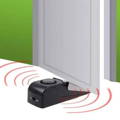“Burglary and sexual assault are the two most reported crimes on college campuses."
Safety First: Self-Defense Tactics Every College Woman Should Know Before Stepping on Campus
Heading off to college marks an exciting chapter in life—newfound independence, lasting friendships, and academic growth. But with this independence also comes the responsibility of staying safe, both on and off campus. While colleges strive to provide secure environments, it’s important for young women to take proactive steps in protecting themselves.
This guide outlines essential self-defense tactics, personal safety strategies, and practical tools to help college women feel more confident and secure in everyday scenarios—whether in the dorms, walking across campus at night, attending parties, or simply living on their own for the first time.
1. Dorm Room Safety: Secure Your Space
Your dorm room, apartment or sorority house bedroom is your home base, and it should be treated as your personal safe haven.
Key tips:
• Lock your door at all times. Even if you're only stepping out to the bathroom or visiting a neighbor down the hall, always lock your door behind you. Many campus thefts and intrusions happen in seconds.
• Don’t prop open secure entrances. While it may seem convenient during move-in or social events, propping doors open can invite unauthorized individuals into residence halls.
• Get to know your neighbors. Building trust and rapport with people on your floor can create a stronger sense of community and shared responsibility for safety.
• Consider a doorstop alarm. Compact, affordable, and effective, a door stop alarm will alert you (and others) to someone trying to enter your room unexpectedly.
• Secure windows and sliding doors. If you're in a ground-level room or apartment, invest in inexpensive window locks or jamming bars that prevent unwanted access.
• Use a diversion safe. Hide your cash and jewelry in a diversion safe to keep them out of sticky hands. Also called stash cans, these are made to look and feel exactly like regular household products but they contain a secret compartment to hide things inside. No one will ever know unless you tell them.

2. Walking Alone—Especially at Night
Walking across campus for a late study session or returning from a friend's dorm can be risky, especially after dark. Here’s how to stay safe on foot:
• Avoid isolated shortcuts. Stick to well-lit paths and busier areas of campus, even if it takes longer to get where you’re going.
• Keep your eyes and ears alert. Keep your phone accessible but don't be distracted by it. Avoid walking with earbuds in or looking at your phone screen. Staying alert is your first line of defense.
• Use campus escort services. Many universities offer late-night campus escort or shuttle services—don’t hesitate to use them.
• Confidence is key. Walk with confidence. Keep your head up, shoulders back, and make eye contact if needed. Predators often target individuals who appear distracted or unsure.
• Carry a safety tool. Personal alarms, pepper spray (where allowed), or self-defense keychains can serve as effective deterrents. Be sure to choose items that comply with your campus regulations.
“In 2021 there were 10,400 reported sexual assaults on college campuses.”
3. Party Safety and Social Situations
Parties can be a fun part of the college experience, but they also introduce a unique set of safety concerns—especially around alcohol consumption and personal boundaries.
Here’s how to stay safe at social gatherings:
• Go with friends and leave with friends. A trusted group is your best protection. Look out for each other and agree in advance to leave together.
• Keep your drink with you at all times. Never accept a drink you didn’t watch being poured and never leave your drink unattended. Don’t trust your friends to watch your drink either. It’s easy for them to get distracted or pulled into a conversation and all it takes is few seconds for someone to drop drugs into your drink.
• Carry drink test cards with you at all times. Even if you aren’t drinking alcohol, your drink can be tampered with. Each drink drug test card has two tests on it and you’ll know quickly if your drink has been doctored.
• Set boundaries early. Whether it’s physical space, touch, or conversation, assert your comfort levels with clarity.
• Have an “exit phrase.” If you or a friend feels uncomfortable, use a prearranged phrase like “Let’s go check on the Uber” to make a quick and discreet exit.
• Trust your instincts. If something feels off, it probably is. Don’t worry about seeming rude—your safety comes first.
4. Know and Respect Campus Policy on Self-Defense Tools
Not all self-defense tools are permitted on college campuses, so it’s essential to research what is and isn’t allowed at your school.
Common campus-approved tools:
• Personal alarms: These emit a loud sound when activated, drawing attention and startling would-be attackers. They’re non-lethal and widely accepted.
• Pepper spray or pepper gel: Most campuses allow small, pocket-sized pepper sprays, but always confirm with campus police. Pepper gel is often preferred for indoor use due to its reduced blowback.
• Stun devices or tasers: These may or may not be allowable carry on your campus because it varies from university to university. Check with your resident assistant or call the campus security office for details. Even if you are not permitted to carry a stun gun on campus, always keep one in your car glove box to protect yourself when you are off-campus.
• Self-defense keychains: Cat-shaped or kubotan-style keychains made of lightweight metal or durable plastic are permitted on all campuses and can be very effective as a way to escape an attacker.
• Flashlights with defensive features: Compact tactical flashlights can be used to temporarily blind an assailant and are a good multi-purpose option for safety.
Before bringing any self-defense item to campus, check your student handbook or contact campus security. It’s absolutely crucial to learn how to use your tool correctly and responsibly.

5. Learn Basic Self-Defense Techniques
Knowing a few physical self-defense techniques can make a significant difference in your ability to escape a dangerous situation. These don’t require extensive martial arts training—just the right mindset and repetition.
Start with the basics:
• Breakaway techniques: Practice how to escape wrist grabs or chokeholds using leverage, not strength.
• Striking vulnerable areas: In an emergency, aim for eyes, throat, groin, or knees. If your attacker is a male, grab or kick the groin to incapacitate an attacker long enough for you to escape.
• Use your voice. Shouting things like “Back off!” or “Help!” can alert bystanders and may deter an attacker. Anything that draws attention to your situation and adds unpredictability will cause your attacker to think twice before they continue.
• Don’t forget you can bite. As adults, we’ve completely forgotten that we can bite because it’s not socially acceptable. In an emergency, throw that socially acceptable behavior out the window and bite your attacker if necessary to escape.
• Sign up for a self-defense class. Many colleges offer free or low-cost workshops through campus police or wellness centers. These programs are tailored to real-life scenarios and boost your confidence.

6. Build a Personal Safety Plan
Preparation is powerful. Create a personalized safety plan that includes:
• Emergency contacts. Save campus security, local police, and your roommates or close friends in your phone under easy-to-find names.
• Safe locations. Know where the nearest emergency call boxes, safe ride stops, and 24-hour buildings are located.
• Check-in systems. Use apps like Life360, or simply agree to text a friend when you arrive or leave a destination.
• Daily awareness. Be mindful of your surroundings, your energy level, and how people around you are behaving.
Empowerment Through Preparedness
College is a time for exploration and growth but safety should never be an afterthought. By staying alert, building awareness, choosing college compliant self-defense tools, and knowing how to react in uncomfortable or dangerous situations, college women can take ownership of their safety without living in fear.
Empowerment comes from preparation. These strategies are about developing instincts and tools that allow you to thrive confidently in your college experience while staying safe, smart, and strong.
Defense Divas® wants you to be equipped to defend yourself not only with a self-defense weapon, but also with the practical knowledge of safety awareness and prevention.
Follow us on your favorite social media platforms (@DefenseDivas) to receive safety tips, product videos and more in your daily feed. Leave us a comment and introduce yourself too!
Copyright©2025 All rights reserved. This article or any portion thereof may not be reproduced or used in any manner whatsoever without the express written permission of Defense Divas®.




